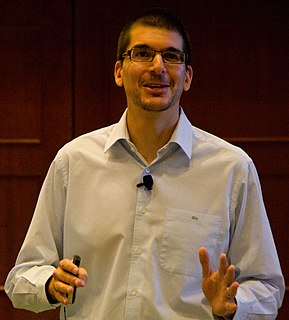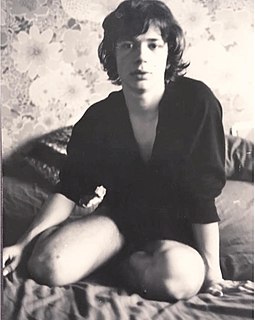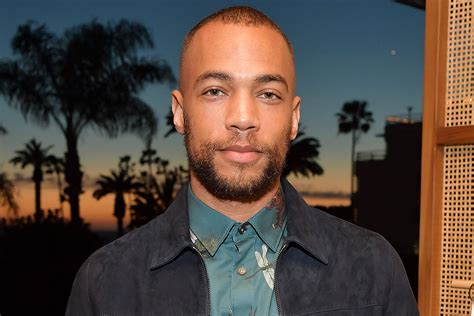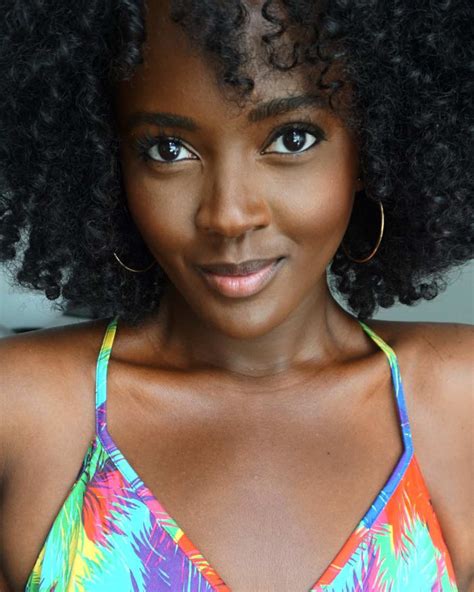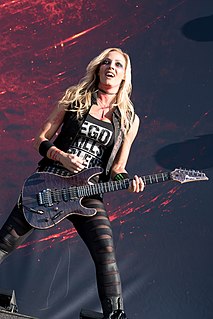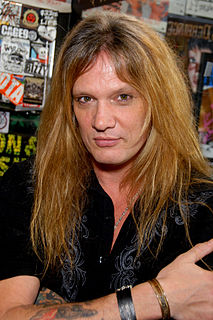Top 1200 Magazine Publishing Quotes & Sayings - Page 3
Explore popular Magazine Publishing quotes.
Last updated on April 21, 2025.
You look at, like, a 'People' magazine, which used to be a really good, you know, nice magazine you could go to for real stories. It wasn't like a 'Star' or an 'US Weekly' and they have somebody with plastic surgery on the cover, Heidi Montag. And it's obviously what consumers want, because why else would they be doing it?
With the old economics destroyed, organizational forms perfected for industrial production have to be replaced with structures optimized for digital data. It makes increasingly less sense even to talk about a publishing industry, because the core problem publishing solves — the incredible difficulty, complexity, and expense of making something available to the public — has stopped being a problem.
If a magazine proudly labels itself 'The Economist,' you would expect that publication to understand the economic burdens of today's youth. But when a tone-deaf writer at the magazine tweets an article asking 'Why aren't millennials buying diamonds,' it pretty much sums up how oblivious some can be in matters they're supposed to be experts in.
WikiLeaks does not publish from the jurisdiction of Ecuador, from this embassy or in the territory of Ecuador; we publish from France, we publish from, from Germany, we publish from The Netherlands and from a number of other countries, so that the attempted squeeze on WikiLeaks is through my refugee status; and this is, this is really intolerable. [It means] that [they] are trying to get at a publishing organisation; [they] try and prevent it from publishing true information that is of intense interest to the American people and others about an election.
There is a marvelous peace in not publishing. It's peaceful. Still. Publishing is a terrible invasion of my privacy. I like to write. I live to write. But I write just for myself and my own pleasure. I don't necessarily intend to publish posthumously, but I do like to write for myself. I pay for this kind of attitude. I'm known as a strange, aloof kind of man. But all I'm doing is trying to protect myself and my work.
When I graduated high school, nearly a half-million people subscribed to 'Popular Electronics' magazine. Soldering up some radio or hi-fi amplifier on the basement workbench was not just a personal passion - a lot of young people were doing the same. The magazine expired in 1999 for lack of interest.
I started out writing romance novels, and that's a side of publishing that's very female oriented. 99.9% of the writers are women, most of the editors are women, and these are books written for the female gaze. And so my point of view - the way I looked at fandom and publishing and writing - was all about women. So for me that's what was natural, that's what was comfortable. And then I moved over to comics. And all of a sudden it was... Pardon the expression, it was a sausage fest.
In September 2005, I was three things: the media blogger for 'FishbowlNY,' a maniacal Daily Show fan, and the only person to smuggle a tape recorder and camera into a big Magazine Publishers of America event featuring Jon Stewart interviewing five hotshot magazine editors in an unbelievable bloodbath.
'Band Played On' is a good one. Barbara Orbison, who was Roy's wife, was involved in publishing in Nashville because she oversaw Roy's publishing, and she had a company in Nashville. She had a whole bunch of writers assembled, and they got together every day and wrote, and they write for everybody in Nashville.
The Internet obviously changes things; we've seen that in the music industry above all else. As an author, I'm now having to deal with the fact that it's happening in the publishing industry as well. And publishing is going through a very difficult time. Some view it as positive, some negative, but nobody really knows how to deal with it. If you're an author it looks very challenging because your work can be pirated so easily and there's very little you can do about it.
I know publishing now more as an author than with occasional peaks inside those elite offices than as an industry insider. It was difficult publishing a novel the first time around, while working behind the scenes, knowing all that has to happen to make a book a success and to still make the leap as an author.
Self-publishing in comics is core to the whole artform. There is no scarlet letter in comics as there still is, to some degree, in prose. As no publisher for a long time would publish serious work in comics, the only way a lot of it came out was because of self-publishing. Many of the greatest works of the medium are self-published.
You need to be naive enough to do things differently. No big publishing house would have allowed us to co-create a fully designed, four color business book in landscape format - because it was contrary to the publishing industry logic. However, we thought of Business Model Generation as a product, not just a book - similar to Apple products.
The editor needs to put his own life on hold for the better of the magazine, the crew, and the readers. And to have a bigger vision of the magazine's style and an understanding that every [issue] should be well-balanced and hopefully surprising. To have a pink wall with a door of perception where he can bang his head on.
Sven Schumann did an interview with photographer Wolfgang Tillmans in Berlin addressing the question: What is photography today when everyone is a photographer? These kinds of questions and answers you find in a magazine, on paper and not on Instagram. For me this is the essence of a magazine - it's questioning what's going on today and celebrating true creativity without compromise.
One time I was doing an interview for a gay magazine and halfway through the journalist found out I wasn't gay. He said, 'Sorry, I can't continue the interview.' Because they only had gay public figures in their magazine. I felt so crestfallen. I wanted to tell him: but I play fundraisers for gay marriage! I'd rather my kids were gay than straight!'
I more seriously considered publishing it under a pseudonym than I considered publishing it as fiction. I think the decision to write it as nonfiction happened at the very outset of the process, because the overwhelming impetus for writing this book was to understand what the experience meant, and to override my own reductions and rationalizations, whatever story I had that was not true. It didn't sit well with me and I needed to answer that. That's sort of the reason I write everything.
First, at a certain point, I wanted to have my own magazine, but I never could. Why? Because I am not commercial enough. The people who would have been able to give me my own magazine, they were not insulting me, but they would simply say, "It wouldn't work for you." And that was a big disappointment to me.
In order for a person of color to get on a cover of a magazine, they have to do something prolific - winning an Oscar, being the first billionaire, you know, or whatever. I think it's becoming more natural that somebody can get on the cover of a magazine just because they're an amazing person. That's what it should be.
Before I went to boarding school, I had never read a fashion magazine. I grew up on a council estate in London, and fashion magazines were a luxury item that weren't even on my mind. The closest I got to a fashion magazine was my cousin's 'Top of the Pops' magazines, where we would learn the lyrics to every song and put posters on our walls.
There's a reason that so much good material is coming down to the small presses: it's difficult to turn a profit, all things considered. But you can't go into small press publishing and complain about the money. Our Little Island publishing just needs to survive. If we're still around in a few years - in vaguely the same shape as we are today - then, to me, that's success.
I don't think anyone is ever writing so that you can throw it away. You're always writing it to be something. Later, you decide whether it'll ever see the light of day. But at the moment of its writing, it's always meant to be something. So, to me, there's no practicing; there's only editing and publishing or not publishing.
After eating, an epicure gives a thin smile of satisfaction; a gastronome, burping into his napkin, praises the food in a magazine; a gourmet, repressing his burp, criticizes the food in the same magazine; a gourmand belches happily and tells everybody where he ate; a glutton empraces the white porcelain alter, or more plainly, he barfs.
During the process of writing the book, I had this experience that was telling for me. I got it and the basic idea and got the plots and everything, but I wasn't sure who the audience was. I exist in this other world - in the book publishing and magazine world of people who would make fun of this project. We were driving home after two weeks in Maine, and we stopped in a gas station in Massachusetts and saw that Snooki had just been arrested. It was a surreal moment. My last few weeks were spent trying to get in this person's head, and there she was in on the cover of the New York Post .
As late as the summer of 1941, the Atlantic Monthly, then a still respected magazine for literates and edited by White men, published a long article by Albert Jay Nock, in which he proved that the Jews are an Oriental race that is incompatible with ours. He was not punished and the magazine was not destroyed, strange and almost incredible as that seems today.
Unbeknownst to me, two readers of the posts, both published authors, contacted their agent, Bill Jensen, within 24 hours of each other, encouraging him to drop me a line. Which he did. He shared his extensive publishing background with me, and prayerfully offered to work out a proposal and to see if God opened any publishing doors? I never get over the unexpected ways of God.
I got an offer at 'Vogue.' And I desperately wanted to work in magazines. My interest wasn't in fashion, but when you get an offer right out of college for a magazine that big - I decided that it was probably better to start at a big name magazine, even if I wasn't necessarily fascinated with the subject.
























